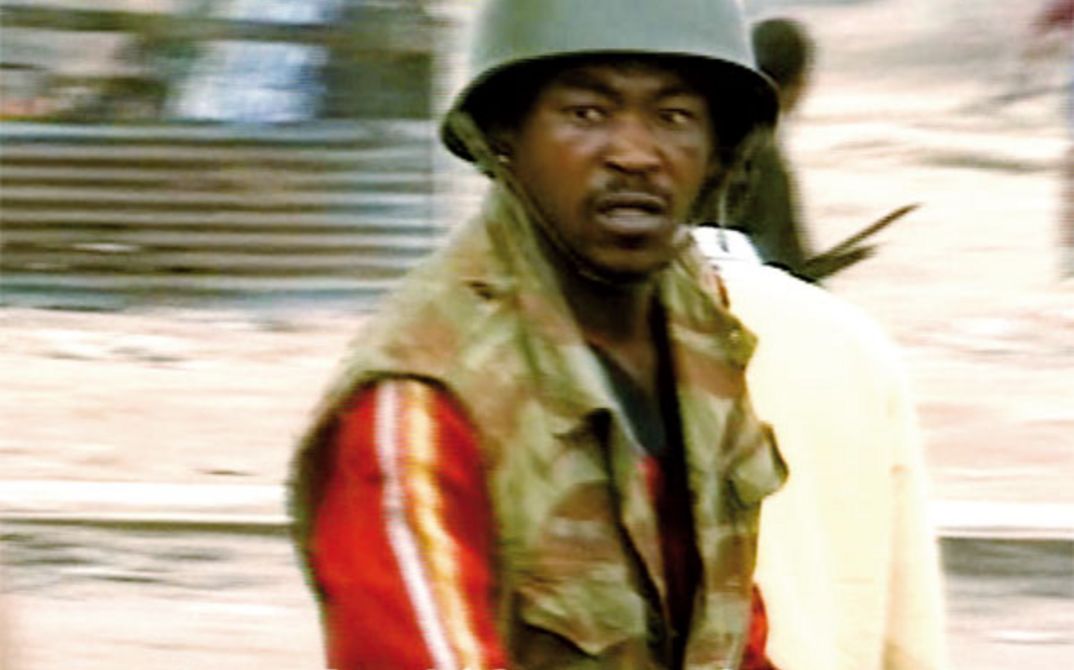13.02. 17:30 Arsenal 2
15.02. 18:00 Arsenal 2 (films only)
Co-curated by Darryl Els und Claus Löser
Episode 1: Crossroads
In May and June 1986 bands of vigilantes wearing strips of white cloth to identify themselves moved into Crossroads - Cape Town’s oldest informal settlement – attacking residents and burning shacks. Crossroads had for years been a stronghold of the resistance movement. The attacks left 60,000 homeless and 60 dead. It was widely alleged that the men with the white cloths or the ‘witdoeke’ were receiving police support and weapons. Afravision was at Crossroads for two days when comrades aligned to the democratic movement resisted the second major Witdoek attack.
Episode 2: Manenberg
In Cape Town 1989 a defiance campaign had been launched targeting segregated apartheid institutions and protesting against the nationwide state of emergency which amongst other things, banned all photographs or recordings of ‘unrest’ or police action. As this campaign built, the state responded with its usual vehemence. In September of that year, elections for the racially segregated parliaments were scheduled and organizations aligned to the democratic movement called for a stay-away, a boycott of the elections as a protest against the racially exclusive electoral system. Afravision’s cameras were in Manenberg witnessing what was never shown on television.
Afravision was a video collective set up to document the struggles that swept South Africa in the 1980s. Most of their images were not seen on television at the time and were distributed within the country through activist youth groups, the trade unions and community organizations. Afravision worked closely with underground political organizations and this gave the collective unique access. Their archive is the most comprehensive and in depth video record of the resistance period. History Uncut is a series of 13 episodes. They take footage from
the Afravsion archive, and show the images as they unfolded for the camera with as little editing or intervention as possible.
Brian Tilley, together with Laurence Dworkin and Mokoenyana Moletse, was a founding member of Afravision. He is currently a producer on the global documentary project WHY POVERTY?
Producers: Brian Tilley, Laurence Dworkin.
Format: DVCAM,
Running time: 48 Minuten
